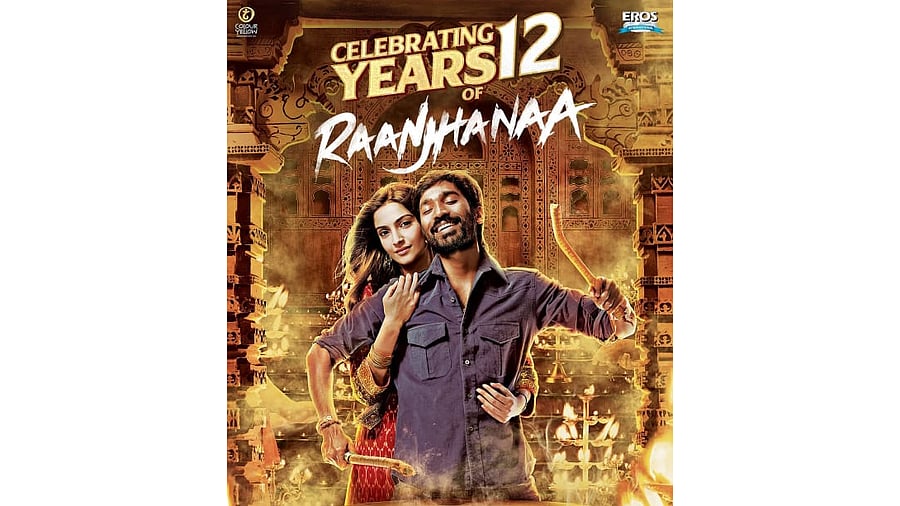
The movie's director Aanand L Rai had also slammed Eros International for re-releasing the movie with an AI-edited climax scene without his consent.
Credit: Instagram/aanandlrai
Tamil actor Dhanush criticised the Artificial Intelligence (AI)-edited ending of his Bollywood movie Raanjhanaa which was re-released last week.
Dhanush, the film's lead star who played the role of Kundan in the 2013 movie, shared a post on X along with a caption which read 'For the love of cinema'.
The actor's post read, "The re-release of Raanjhanaa with an AI-altered climax has completely disturbed me."
"This alternate ending has stripped the film of its very soul, and the concerned parties went ahead with it despite my clear objection. This is not the film I committed to 12 years ago."
It further read, "The use of AI to alter films or content is a deeply concerning precedent for both art and artists."
"It threatens the integrity of storytelling and the legacy of cinema. I sincerely hope that stricter regulations are put in place to prevent such practices in the future," Dhanush's post read.
In the original movie, Dhanush's character Kundan dies in the end, but in the AI-altered version, Kundan survives and wakes up in a hospital with characters Bindiya and Murari shedding happy tears.
The movie's director Aanand L Rai had also slammed Eros International for re-releasing the movie with an AI-edited climax scene without his consent.
In a post on Instagram, Rai said, "Let me say this as clearly as I can: I do not support or endorse the AI-altered version of Raanjhanaa. It is unauthorised. I had no role in it. Neither did the team that made the film. And whatever it claims to be, it is not the film we intended, or made. This was never just a film to us. It was shaped by human hands, human flaws, and human feeling. What's now being circulated is not a tribute. It is a reckless takeover that strips the work of its intent, its context, and its soul."
"The idea that our work can be taken and modified by a machine, then dressed up as innovation, is deeply disrespectful. To cloak a film's emotional legacy in a synthetic cape without consent, is not a creative act. It's an abject betrayal of everything we built. I'm speaking for everyone who helped bring this film to life. The writer, actors, composer, lyricist, technicians, and larger crew. None of us were consulted. None of us were heard," the director further wrote.
